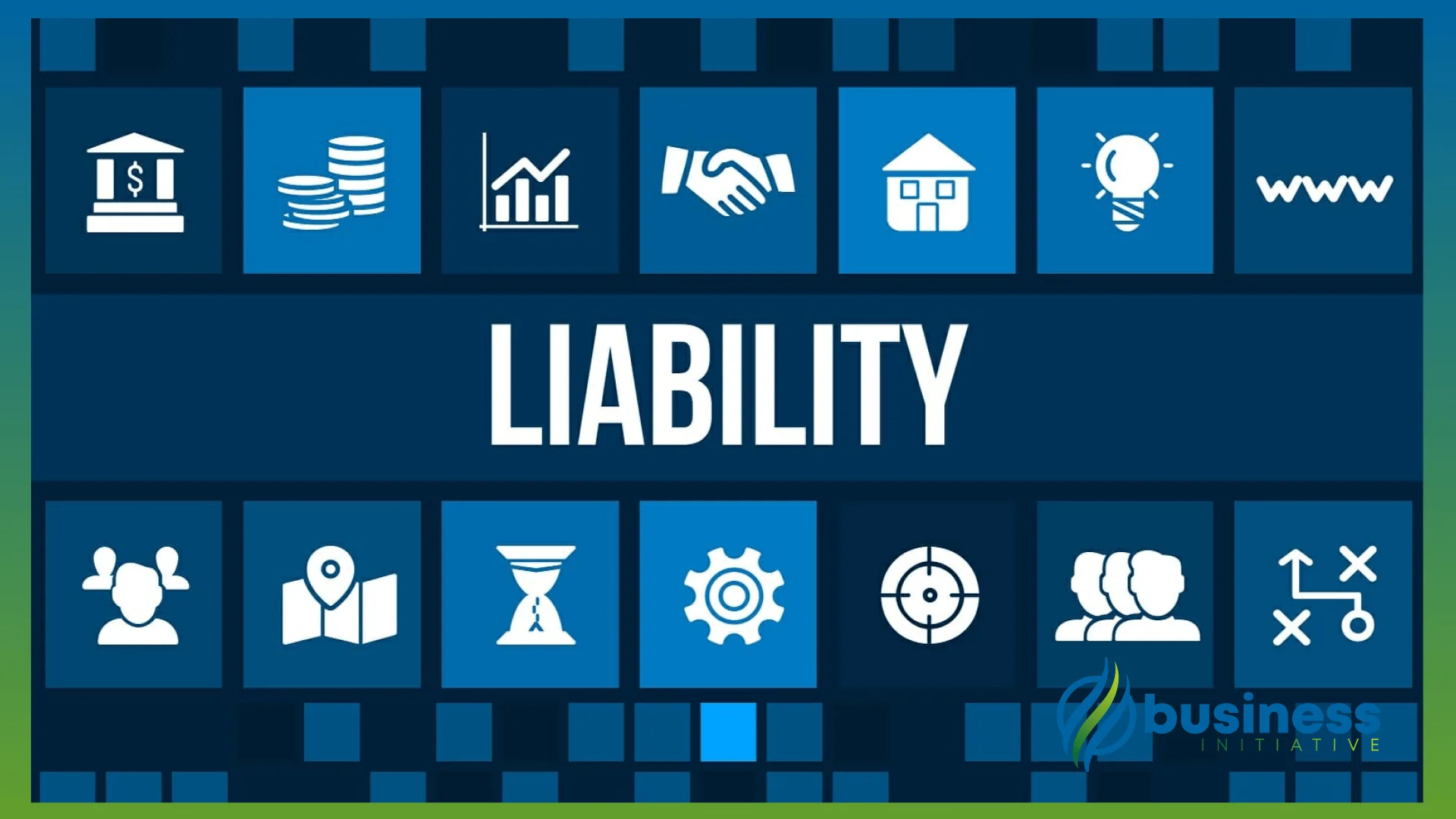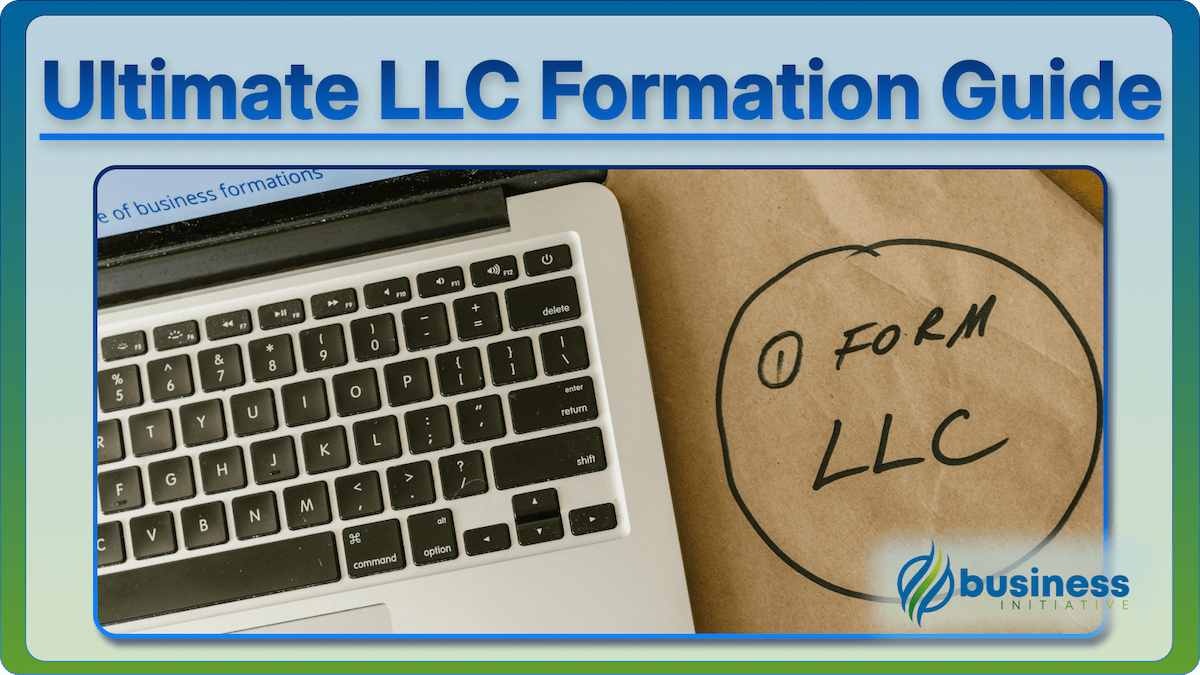You’re choosing a business structure.
But you’re overwhelmed. Too many options. Too much information. You need a simple way to narrow it down.
Five questions can eliminate most options.
Answer honestly. Follow the logic. See which structure fits your situation.
This quiz guides you to your answer.
No complex analysis. No overwhelming research. Just five questions. One clear result.
Read this. Take the quiz. Make your decision.
 Key Takeaways
Key Takeaways
- Answer five key questions about your business goals, risk level, funding plans, tax situation, and growth plans to narrow your entity options
- Most founders will narrow down to one or two realistic choices—this quiz eliminates options that clearly don't fit your situation
- The quiz considers investment goals, liability protection needs, tax preferences, compliance capacity, and growth plans
- Your answers determine whether you need a corporation (for investment), LLC (for most small businesses), or sole proprietorship (for testing)
- After the quiz, use the recommended structure as your starting point and consult with professionals for final confirmation
 Table of Contents
Table of Contents

Why a Quiz
A quiz cuts through the noise.
What happens if you only read descriptions:
- Too many options to compare
- Hard to know what matters most
- Analysis paralysis
- Delayed decisions
What happens if you answer targeted questions:
- Clear elimination of wrong options
- Focus on what matters for your situation
- Quick narrowing to 1-2 choices
- Confident decisions
The solution: Answer five questions. Follow the logic. Get your answer.
Question 1: Investment Plans
Do you plan to raise significant outside investment (VC, angel investors, or equity financing) in the next 2-3 years?
Answer A: Yes, definitely
- You need investor-friendly structure
- Corporations are standard for investment
- Stock structure enables funding
- Investors expect corporations
Answer B: Maybe, not sure
- Keep options open
- Consider corporation if likely
- LLC can convert later if needed
- Evaluate based on other factors
Answer C: No, self-funded or small investors only
- Corporation not required
- LLC works well for owner-funded businesses
- Simpler structure is fine
- Focus on other factors
Why it matters: Investment plans determine whether you need a corporation. Investors expect corporations. LLCs work for owner-funded businesses.
Pro tip: If you’re definitely raising investment, choose a corporation. If you’re unsure, an LLC gives you flexibility to convert later. See our comparison guide for funding options.

Question 2: Liability Risk
How much personal liability risk does your business face? (Consider lawsuits, debts, accidents, professional errors)
Answer A: High risk (professional services, products, high-value contracts)
- You need strong liability protection
- Corporation or LLC required
- Personal assets must be protected
- Don’t operate as sole proprietorship
Answer B: Moderate risk (service business, consulting, standard operations)
- Liability protection recommended
- LLC provides good protection
- Corporation also works
- Avoid sole proprietorship
Answer C: Low risk (testing idea, minimal operations, low exposure)
- Some protection still recommended
- LLC is good starting point
- Sole proprietorship possible for testing
- Upgrade when business grows
Why it matters: Liability protection protects your personal assets. High-risk businesses need strong protection. Low-risk businesses can start simpler.
Pro tip: Most businesses should have liability protection. Even low-risk businesses can face unexpected lawsuits. See our liability risk guide for details.

Question 3: Tax Preferences
What’s your priority for tax treatment?
Answer A: Minimize taxes, willing to handle complexity
- Consider S-Corp election if profits justify
- Pass-through taxation preferred
- Willing to handle payroll and compliance
- Optimize for tax savings
Answer B: Keep taxes simple, avoid complexity
- Default LLC taxation is fine
- Pass-through taxation preferred
- Avoid double taxation
- Simplicity over optimization
Answer C: Don’t know, need guidance
- Start with default LLC taxation
- Can optimize later if needed
- Consult with tax professional
- Keep options open
Why it matters: Tax treatment affects your bottom line. Some structures offer tax optimization. Others prioritize simplicity.
Pro tip: Most small businesses benefit from pass-through taxation (LLC default). S-Corp elections can save taxes but add complexity. See our S-Corp guide for when it makes sense.
Question 4: Compliance Capacity
How much time and resources can you dedicate to ongoing compliance and record-keeping?
Answer A: Limited time, want minimal compliance
- Prefer simpler structures
- LLC with default taxation
- Avoid corporations if possible
- Keep compliance burden low
Answer B: Moderate capacity, can handle standard requirements
- LLC works well
- Corporation possible if needed
- Can handle annual reports and basic record-keeping
- Standard compliance is fine
Answer C: High capacity, can handle complex requirements
- Corporation is fine
- S-Corp election possible
- Can handle extensive record-keeping
- Complex compliance is manageable
Why it matters: Compliance requirements vary by structure. Corporations require more compliance. LLCs offer a good balance.
Pro tip: Most small businesses should choose structures they can maintain. Over-complicating leads to compliance failures. See our compliance guide for requirements.

Question 5: Growth Plans
What are your growth plans for the next 3-5 years?
Answer A: Rapid growth, scaling, potential exit (IPO, acquisition)
- Corporation structure preferred
- Investor-friendly structure needed
- Stock options for employees
- Professional structure required
Answer B: Steady growth, building sustainable business
- LLC works well
- Can convert to corporation later if needed
- Flexible structure
- Focus on building business
Answer C: Lifestyle business, moderate growth, personal control
- LLC is ideal
- Simple structure preferred
- Owner control important
- Avoid unnecessary complexity
Why it matters: Growth plans affect structure choice. Rapid growth businesses need investor-friendly structures. Lifestyle businesses benefit from simplicity.
Pro tip: You can change structures as your business grows. Start with what fits now. Upgrade later if needed. See our founder profiles for examples.

Your Results
Use your answers to determine your recommended structure:
If You Answered Mostly A’s (Investment, High Risk, Tax Optimization, High Compliance, Rapid Growth)
Recommended: C-Corporation
Why:
- Investment plans require corporation structure
- High liability risk needs strong protection
- Tax optimization possible with proper structure
- High compliance capacity can handle requirements
- Rapid growth benefits from professional structure
Next Steps:
- Form as C-Corporation
- Consider Delaware incorporation if seeking investment
- Set up proper corporate structure
- Plan for stock options if needed
Pro tip: Corporations are best for investment-seeking, high-growth businesses. See our comparison guide for details.
If You Answered Mostly B’s (Maybe Investment, Moderate Risk, Simple Taxes, Moderate Compliance, Steady Growth)
Recommended: LLC
Why:
- Flexible structure works for most situations
- Good liability protection
- Simple pass-through taxation
- Moderate compliance requirements
- Can convert to corporation later if needed
Next Steps:
- Form as LLC
- Use default tax treatment initially
- Consider S-Corp election later if profits justify
- Maintain proper compliance
Pro tip: LLCs work for most small businesses. They offer good protection with manageable compliance. See our decision tree for detailed guidance.
If You Answered Mostly C’s (No Investment, Low Risk, Simple Taxes, Low Compliance, Lifestyle Business)
Recommended: LLC (or Sole Proprietorship for Testing)
Why:
- No investment needs, so corporation not required
- Low risk, but still recommend protection
- Simple tax treatment preferred
- Low compliance capacity needs simple structure
- Lifestyle business benefits from simplicity
Next Steps:
- Form as LLC for protection
- Or start as sole proprietorship if just testing
- Upgrade to LLC when business is established
- Keep structure simple
Pro tip: Even low-risk businesses should consider LLC protection. The cost is minimal compared to potential liability. See our liability guide for why protection matters.
Mixed Answers
If you have mixed answers:
- Prioritize investment plans (Question 1) - if yes, choose corporation
- Prioritize liability risk (Question 2) - if high, avoid sole proprietorship
- Consider your compliance capacity (Question 4) - don’t over-complicate
- Start with LLC if unsure - it’s flexible and can convert later
Pro tip: When in doubt, start with an LLC. It offers good protection with flexibility to convert later. See our comparison guide to understand tradeoffs.
Your Next Steps
You’ve narrowed your options. Now take action.
This Week:
- Review your quiz answers
- Confirm your recommended structure
- Research specific requirements for your state
- Consult with professionals if needed
This Month:
- Form your business entity
- Set up proper structure
- Establish compliance systems
- Begin operations
Going Forward:
- Monitor your business situation
- Reassess structure as business grows
- Adjust structure if goals change
- Stay compliant with requirements
Need help? Check out our entity type decision tree for detailed guidance, our comparison guide for side-by-side analysis, and our founder profiles for real examples.
Stay informed about business strategies and tools by following us on X (Twitter) and signing up for The Initiative Newsletter.
FAQs - Frequently Asked Questions About From Overwhelmed to Decisive: A 5-Question Quiz to Narrow Your Entity Options

What five questions does the entity selection quiz ask to narrow your options?
The quiz covers investment plans, liability risk level, tax preferences, compliance capacity, and growth plans over the next 3-5 years.
Learn More...
Question 1 asks whether you plan to raise significant outside investment (VC, angel, equity financing) in the next 2-3 years—this determines if you need a corporation structure. Question 2 assesses your personal liability risk level based on the type of business you run.
Question 3 explores your tax treatment priority—whether you want to optimize taxes with complexity or keep things simple. Question 4 evaluates how much time and resources you can dedicate to ongoing compliance and record-keeping.
Question 5 examines your growth plans—rapid scaling with potential exit, steady sustainable growth, or a lifestyle business with moderate growth. Each answer eliminates options that don't fit your situation.
Why does the quiz recommend a C-Corporation for founders who answer mostly A's?
Mostly A's indicate investment plans, high liability risk, tax optimization goals, high compliance capacity, and rapid growth ambitions—all of which point to the C-Corporation structure.
Learn More...
C-Corporations are the standard structure for businesses seeking outside investment because investors expect stock structure and the corporate formalities that come with it. If you're planning to raise VC or angel funding, a C-Corp is practically required.
High liability risk demands strong protection, and corporations provide a well-established legal framework for asset protection. The willingness to handle complex compliance means you can manage corporate requirements like annual meetings, minutes, and board resolutions.
Rapid growth plans with potential exit (IPO or acquisition) align perfectly with corporation structure, which enables stock options for employees and provides the professional structure that acquirers and public markets expect.
When does the quiz suggest an LLC is the best choice for a founder?
The quiz recommends an LLC when you have moderate risk, prefer simple taxes, can handle standard compliance, plan steady growth, and may or may not seek investment later.
Learn More...
LLCs are recommended for founders who answer mostly B's—indicating moderate risk, a preference for simple pass-through taxation, moderate compliance capacity, and steady growth plans. This covers the majority of small business owners.
The LLC offers flexibility that corporations don't: default pass-through taxation avoids double taxation, compliance requirements are manageable, and liability protection is solid without the formality burden of a corporation.
Crucially, LLCs can convert to corporations later if your situation changes—if you decide to pursue investment or plan an IPO, you can restructure. This makes the LLC an ideal starting point when you're not certain about your long-term path.
Can a sole proprietor benefit from this quiz even with low risk and a lifestyle business?
Yes—the quiz recommends LLC protection even for low-risk lifestyle businesses, with sole proprietorship only as a temporary option while testing a business idea.
Learn More...
If you answer mostly C's (no investment needs, low risk, simple taxes, low compliance capacity, lifestyle business), the quiz recommends an LLC as your primary option, with sole proprietorship only as a short-term testing structure.
Even low-risk businesses can face unexpected lawsuits, and the minimal cost of forming an LLC provides liability protection that a sole proprietorship cannot. The quiz emphasizes that the protection-to-cost ratio heavily favors the LLC.
The recommended path is to start as a sole proprietorship only if you're testing a very early-stage idea, then upgrade to an LLC once the business is established. Waiting too long to form an LLC leaves your personal assets unnecessarily exposed.
What should you do if your quiz answers are mixed across A's, B's, and C's?
Prioritize your investment plans first (corporation if yes), liability risk second (avoid sole proprietorship if high), and compliance capacity third (don't over-complicate). When in doubt, choose an LLC.
Learn More...
Mixed answers are common because most businesses don't fit neatly into one profile. The quiz provides a prioritization hierarchy: investment plans (Question 1) are the strongest signal—if you're definitely raising capital, you need a corporation regardless of other answers.
Liability risk (Question 2) is the second priority—if you face high risk, eliminate sole proprietorship entirely. Compliance capacity (Question 4) acts as a practical filter—don't choose a structure you can't maintain, as compliance failures can be worse than choosing a simpler structure.
When answers don't point clearly in one direction, the LLC is the safest default. It offers good liability protection, simple taxation, manageable compliance, and the flexibility to convert to a corporation later if your situation changes.
Why does the quiz approach work better than reading descriptions of every entity type?
Descriptions create information overload and analysis paralysis, while targeted questions quickly eliminate options that don't fit your specific situation.
Learn More...
Reading about every entity type—sole proprietorship, LLC, S-Corp, C-Corp, partnership—gives you too many options to compare simultaneously. Each sounds good for different reasons, making it impossible to decide.
The quiz takes the opposite approach: instead of learning everything about every option, you answer five targeted questions about your situation. Each answer eliminates structures that clearly don't fit, narrowing the field to one or two realistic choices.
This mirrors how experienced business attorneys actually guide clients. They don't explain every entity type in detail—they ask key questions about investment plans, risk tolerance, tax preferences, and growth goals, then recommend the structure that fits.
Sources & Additional Information
This quiz provides general guidance based on common business scenarios. Your specific situation may require professional advice.
For detailed entity selection guidance, see our Entity Type Decision Tree.
For side-by-side comparisons, see our Comparison Guide.
For real-world examples, see our Founder Profiles.
Consult with legal and tax professionals for advice specific to your situation.


